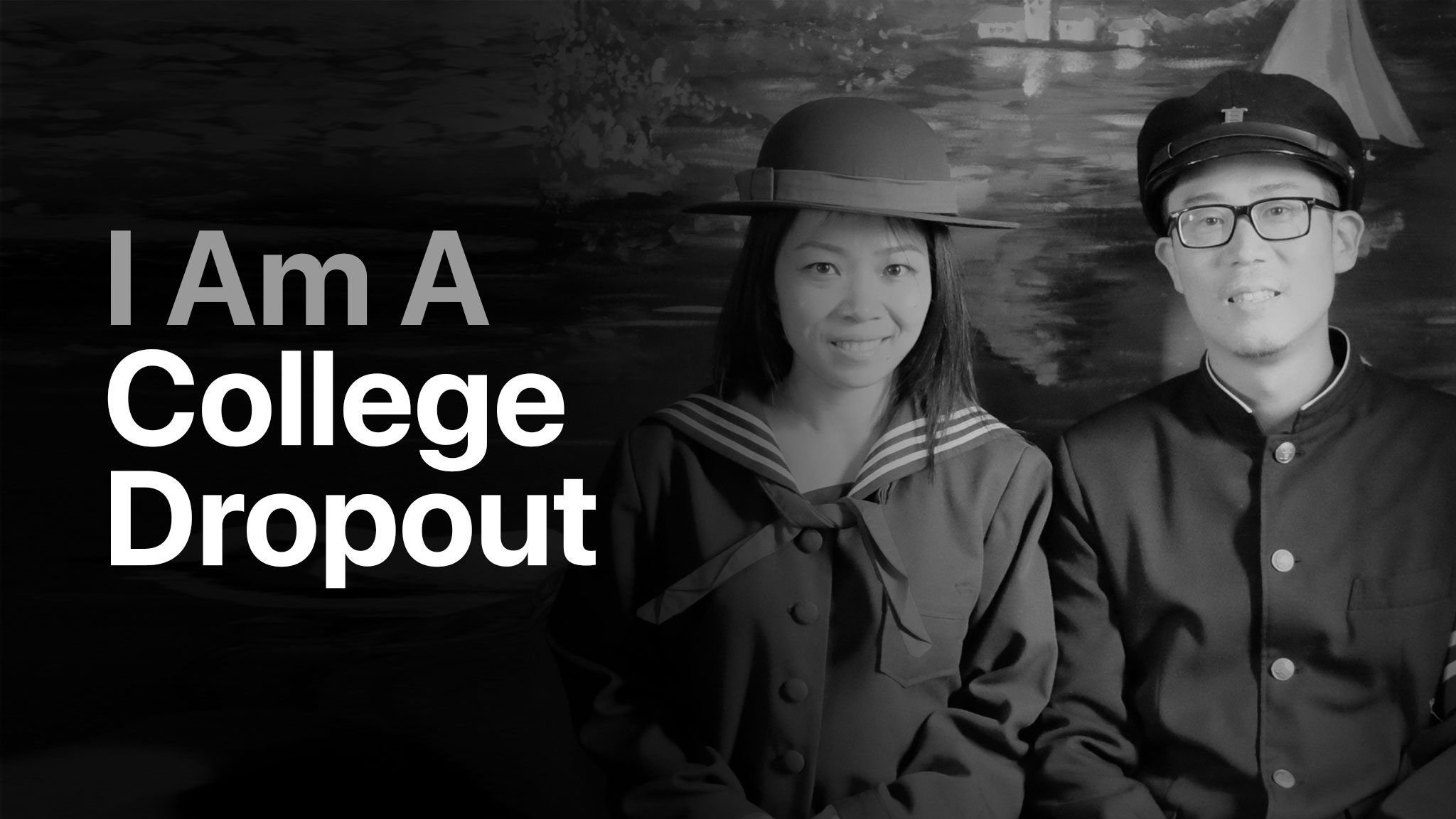For almost 15 years of my life, I never told anyone I dropped out of college.
Trust me, when you grow up in a Korean household, it’s a big deal. 😅
At first, I wasn’t trying to hide it. I figured I’d never get a real job without a degree, then everyone would find out. But I did end up getting a job.
Then for years when I meet people and they ask where I went to school, I’d just say “I went to Binghamton University.” I didn’t feel the need to mention that I never graduated.
Years went by without anyone knowing, including my wife, Gigi.
Until a few years ago…
Someone asked me “what year did you graduate?”
No one’s ever asked me that before. And Gigi happened to be there!
I was nervous, but also a little relieved because this was my chance to “come clean” for once.
So I replied “oh, I never graduated.”
Afterwards, Gigi said to me “What? You never graduated? How did I not know about this?”
From the look on her face I can see she was shocked. That’s when I realized how big of a lie this was.
The thing is, I lived most of my adult life pretending.
There were so many of these little “shameful flaws” I was hiding. Most of them, I don’t even know why.
This may sound counterintuitive, but once I started sharing all my flaws, the more confident I became. It felt like a huge weight has been lifted off my shoulders.
Here’s why I’m telling you this story.
Most of us live with something we’re ashamed of.
It can be the smallest thing, like a little white lie on a resume or a little exaggeration about our job.
But these little things make it hard for us to show up fully as ourselves. And the audience can feel it. They might not know we’re hiding something, but they can sense our insecurity.
Maya Angelou said “There is no greater agony than bearing an untold story inside you.”
Marketers bastardized the phrase “being vulnerable” and made it meaningless, but vulnerability is not a tool for marketing or “connecting” with your audience.
The truth is, when you share a vulnerable story, the person it benefits the most is YOU!
So share your story. Take the burden off your shoulders.
Here are 3 practical tips that might help:
Tip #1. Be brutally honest about your flaws
When most people tell a vulnerable in their story, they don’t realize they’re actually telling a sob story.
Here’s an example of a sob story I read on Twitter:
“When I was young, nobody wanted to play with me because I was weird, but I didn’t care. Eventually I found other weird kids that nobody wanted to play with and we formed our own tribe. What’s the lesson? Be yourself and find your own tribe.”
What’s the problem here? It’s missing a “character flaw”.
A vulnerable story is a hero’s journey. It means the character went through an inner transformation where the “old you” (with a character flaw) learns a lesson and become the “new you”.
In this story, there is no “old you” and no inner transformation. Basically she was always right from the beginning to the end.
A vulnerable story would sound more like this:
“When I was young, nobody wanted to play with me, because I was weird. I wanted the popular kids to hang out with me, so I dressed like them and talked like them. I even made fun of my own sister so they would accept me. I became one of the mean girls. But it was exhausting because I was faking it all the time. I gave up trying to fit in and decided to be my weird self again. That’s when I found a tribe of other weird kids like me. What’s the lesson? Be yourself and find your own tribe.”
There’s a clear character flaw and inner transformation.
Tip #2. Don’t spare any juicy details
There was a wellness coach who was telling me a story, but being very vague. She said “I feel like I’m an imposter. Everyone thinks I’m this really health conscious wellness coach, but I’m not.”
I asked her “can you give me an example?”
She paused for a bit and said “I’m a smoker. The other day I was hiding behind the yoga studio to smoke a cigarette, then I washed my hands before going to brunch so nobody would smell it”
Can you feel how much more vulnerable it was with the details?
Be specific. We try to be vague because we don’t want the audience to picture us in the back alley, hiding, and smoking. We don’t like that because it makes the story more real in their head.
Don’t do that. Give the juicy details.
Tip #3. Say the thing nobody is saying
This week, in my storytelling community, we were discussing how we have a “fear of success”. This makes us do 90% of the work, then procrastinate on finishing the last 10%.
One of the members replied with a story about how “fear of success” shows up in her life. Whenever she is trying to lose weight and when she’s almost at 90% and clothes start to fit better, she would start eating a little more and sabotage her progress.
When I heard this I was like “OMG, I can relate to this so much! I’ve done that like 10 times in my life.”
Being vulnerable isn’t sharing your trauma or rock bottom moment. It’s sharing these little moments that nobody really talks about. It’s risky and vulnerable because you don’t know if others will relate or if you’re the only loser who experienced it.
The Most Valuable F*cking Emails
Guaranteed to make you say:
I never thought of it that way!
Enter your name and email to get'em:
